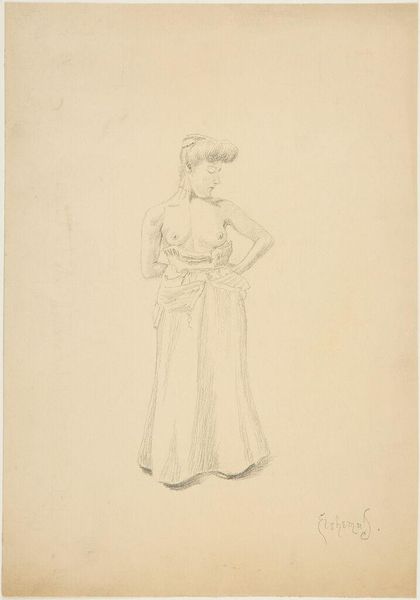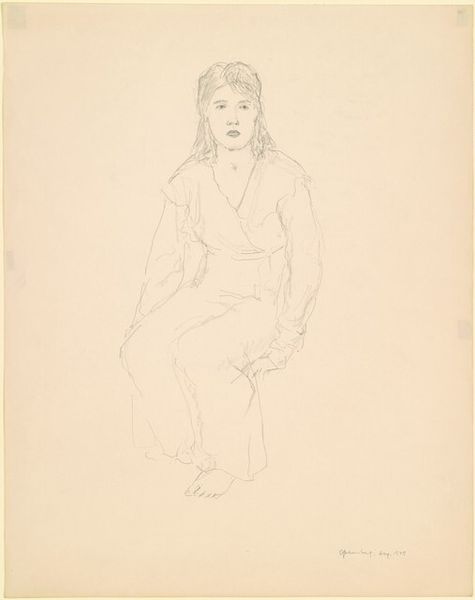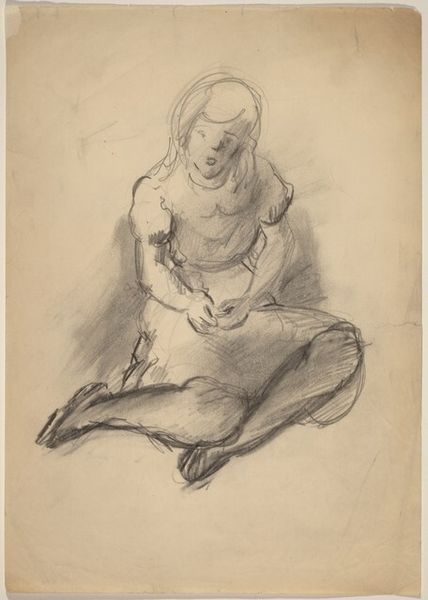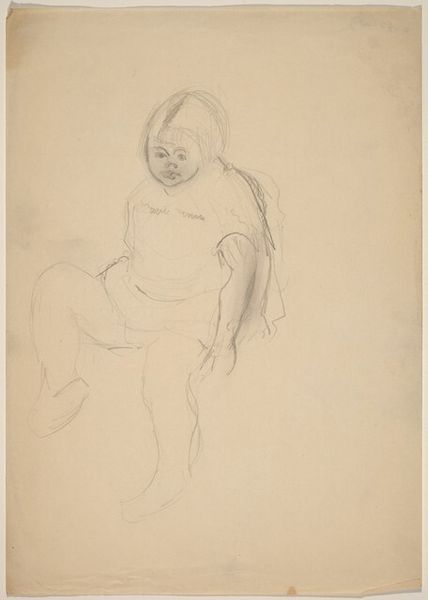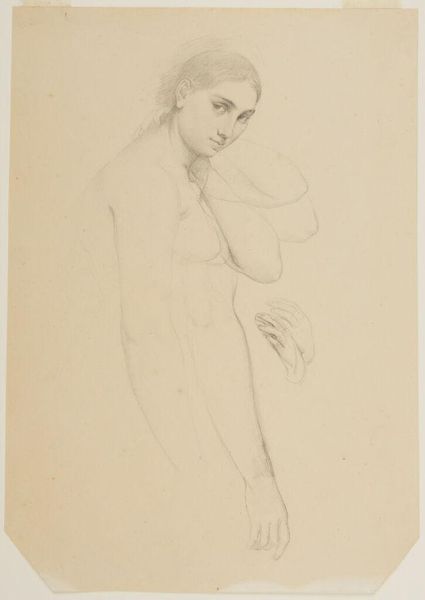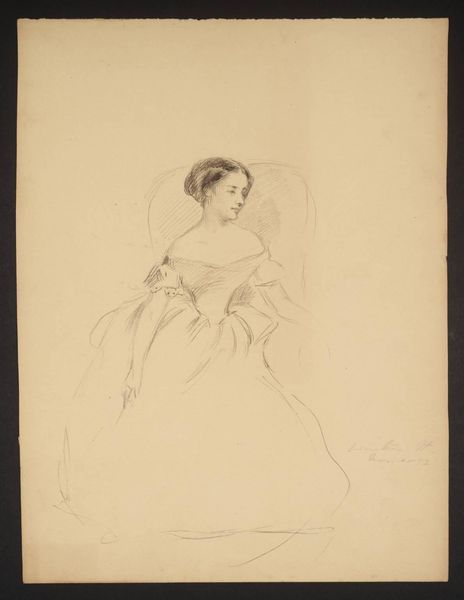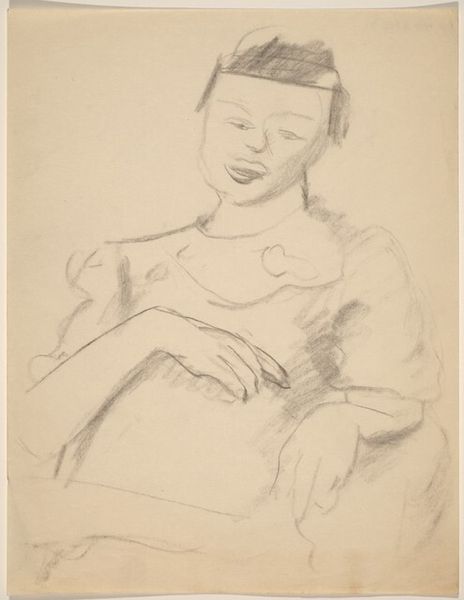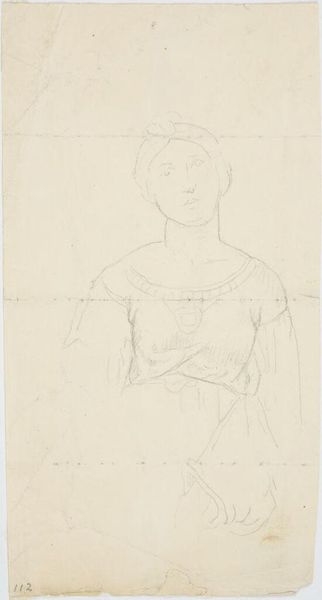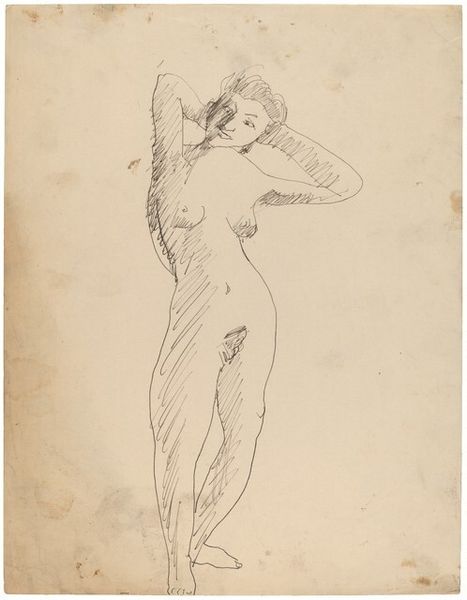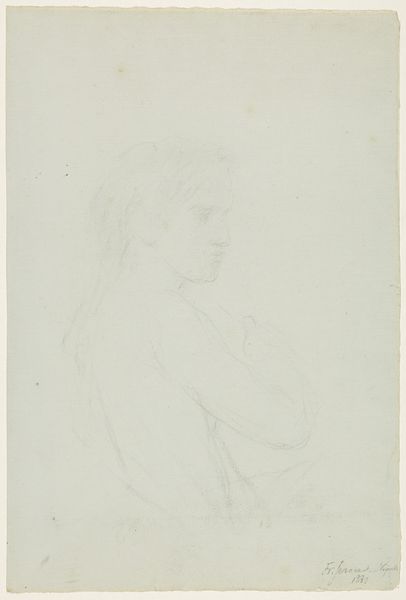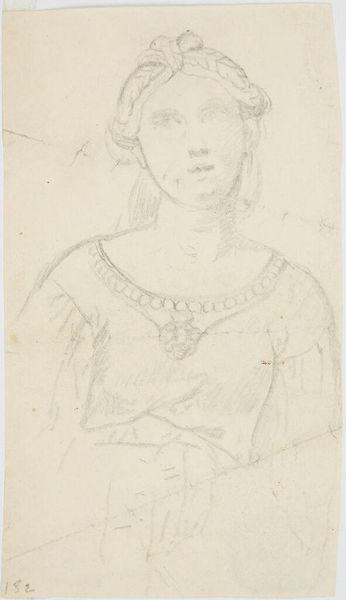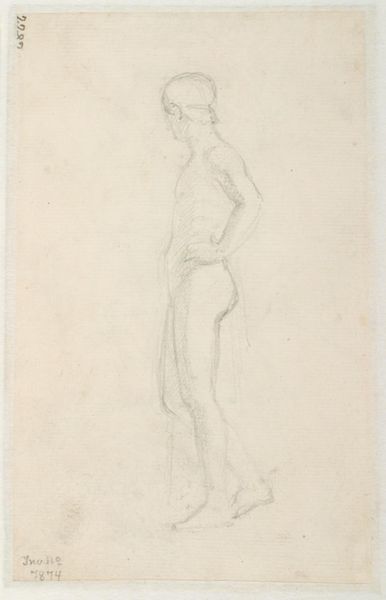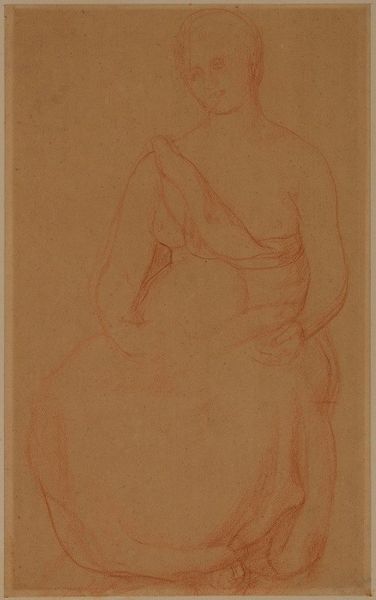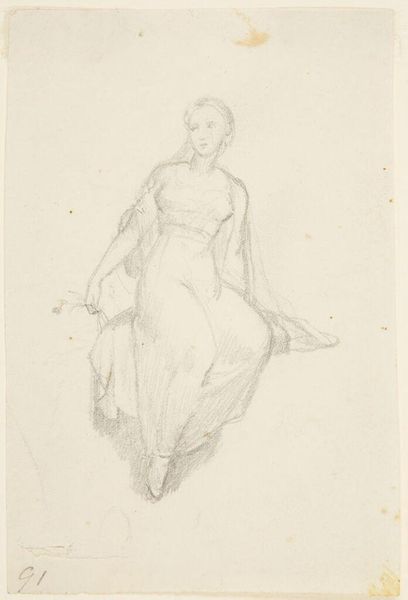
drawing, pencil
#
portrait
#
drawing
#
figuration
#
pencil
Dimensions: overall: 27.8 x 21.6 cm (10 15/16 x 8 1/2 in.)
Copyright: National Gallery of Art: CC0 1.0
Editor: So, here we have Lilian Westcott Hale's "Nancy Hale Bowers Seated," a pencil drawing from around 1936. The sketchiness gives it an intimate, almost vulnerable quality. What do you see in this piece? Curator: It's interesting how that vulnerability you describe resonates within the broader social context of the 1930s. Consider the societal expectations placed on women during that era – how they were often viewed and portrayed. The seeming fragility of the lines in Hale's sketch, the unfinished quality, could be interpreted as a quiet resistance to those expectations, a refusal to be fully defined or confined. Do you think that Nancy's own social standing might be important here? Editor: That’s a perspective I hadn’t considered! So you are thinking about how Hale presents the sitter almost defying the ideal of women at the time? How so? Curator: Precisely. We have to remember Hale, like many women artists of her generation, struggled for recognition in a male-dominated art world. Is she representing something of that experience in the sitter herself, even unconsciously? Does Nancy embody qualities not typically valued or portrayed in women at the time, perhaps introspection or independence? And how does the choice of medium contribute? A quick drawing in pencil rather than formal painted portrait for instance? Editor: It makes me wonder if the incompleteness, the lack of sharp lines and precision, is almost like a metaphor. Perhaps it mirrors the ongoing struggle for women to fully realize themselves, to find complete expression. Curator: Exactly! This drawing gives agency. How fascinating that a "simple" portrait could hold so many layers of meaning related to identity, gender, and the politics of representation. Thanks for helping to unlock those possibilities for our listeners. Editor: I never would have considered those aspects without your input. Thinking about it as an act of artistic, maybe even a feminist, resistance, completely changes my understanding of the work.
Comments
No comments
Be the first to comment and join the conversation on the ultimate creative platform.
